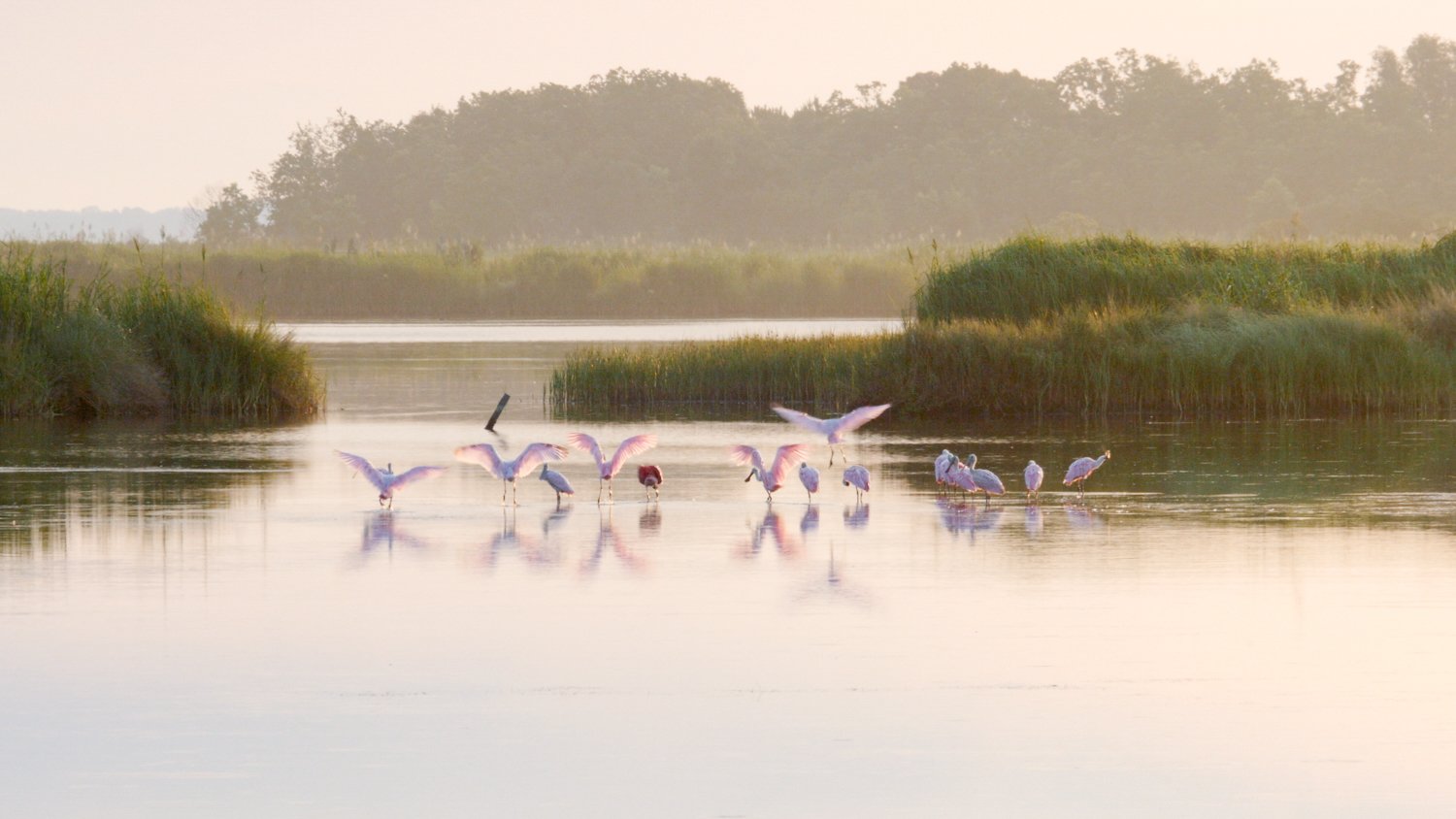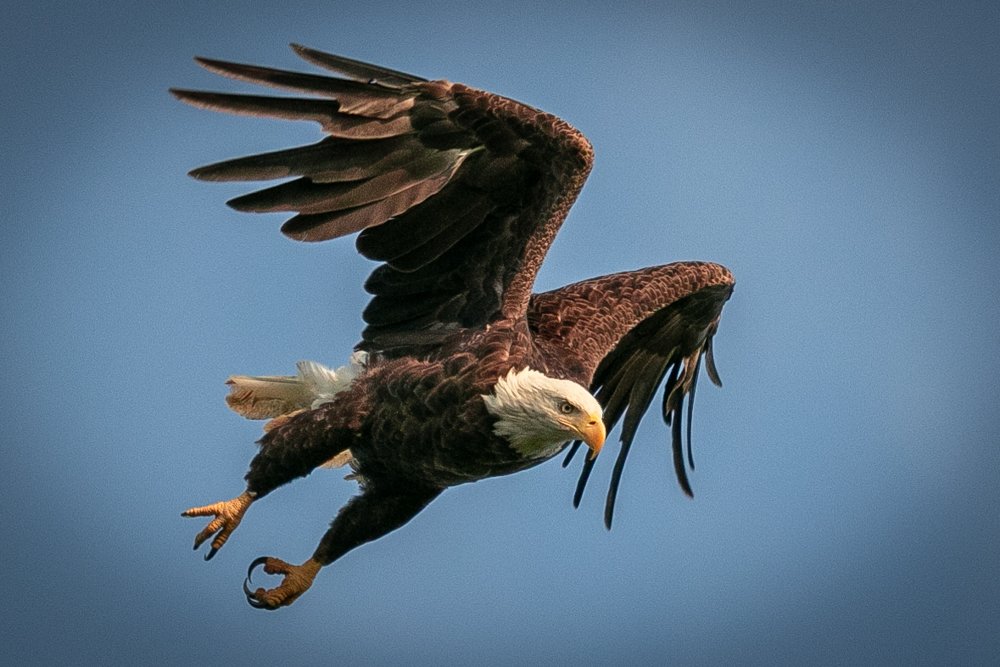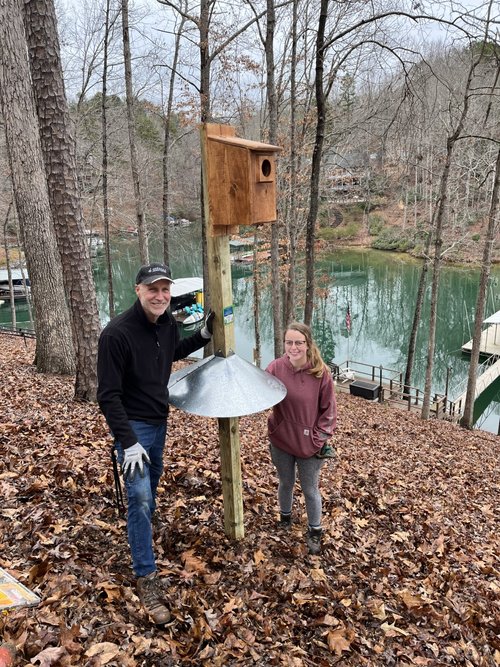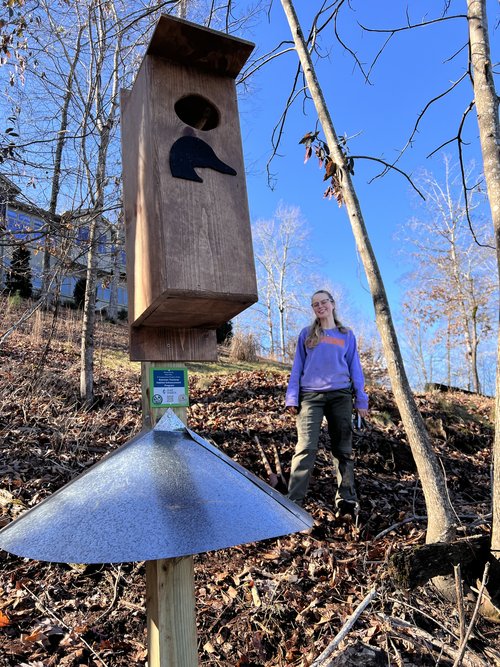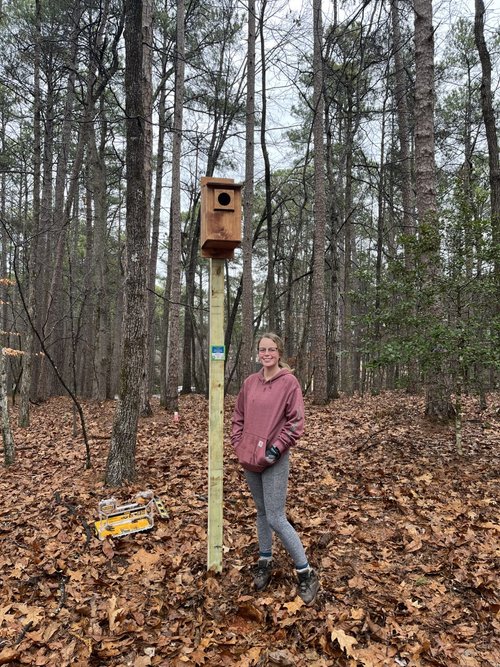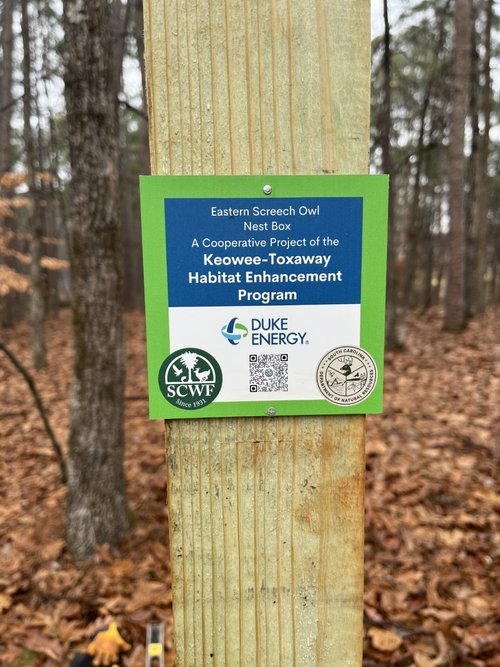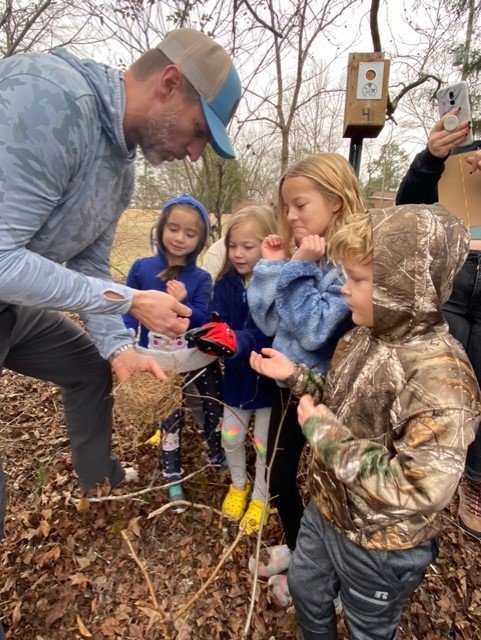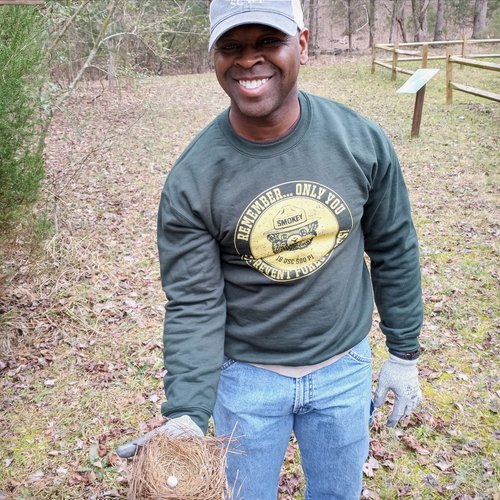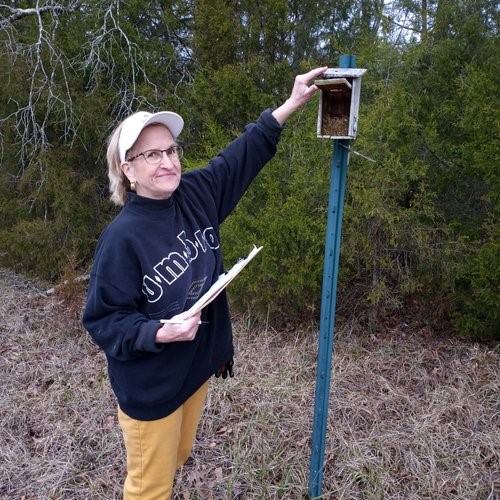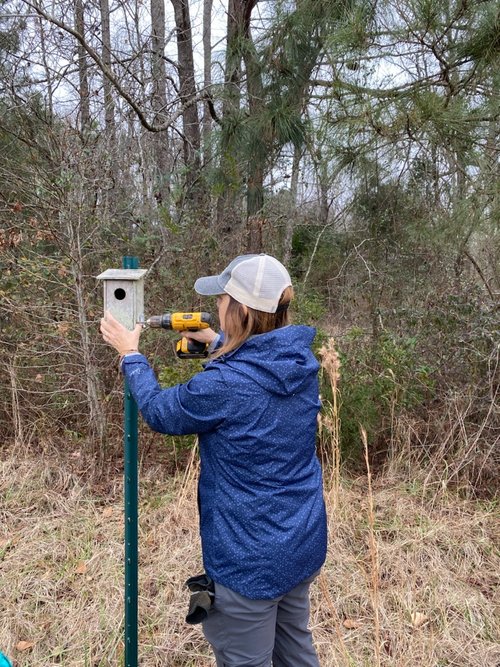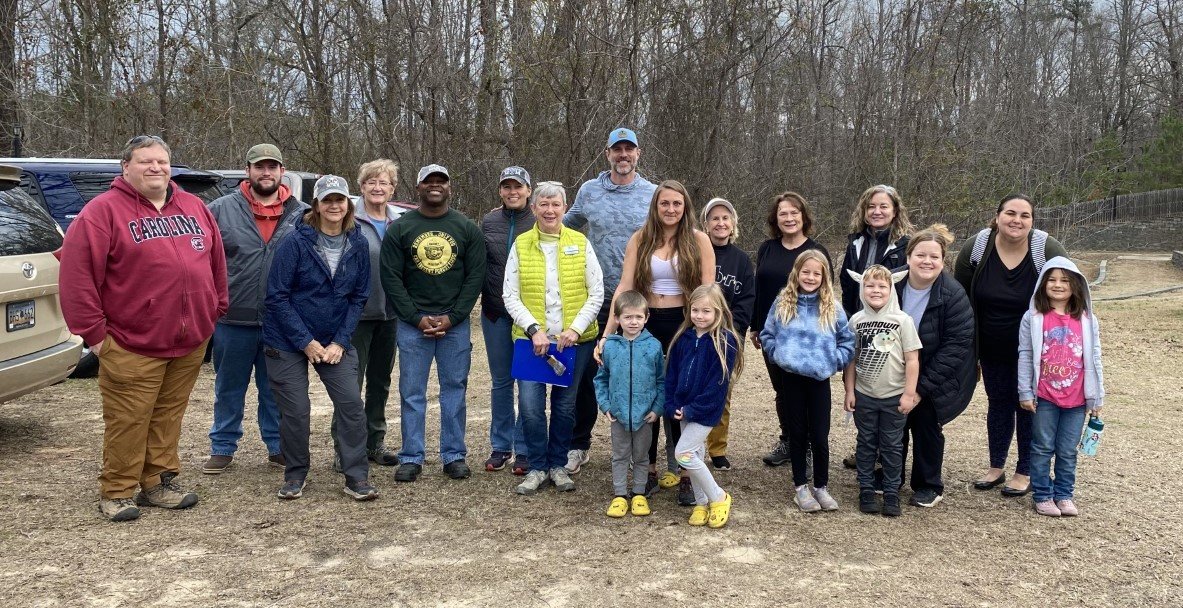SCWF Executive Director, Sara Green, had the opportunity to speak on behalf of the SC Conservation Coalition about land conservation at the recent “Conversations with Conservationists” Senate Briefing.
You can find the recording from this event in the State House website’s video archives through the button below – it’s titled “Conversation with Conservationists”:
Here is a transcript of Sara’s remarks:
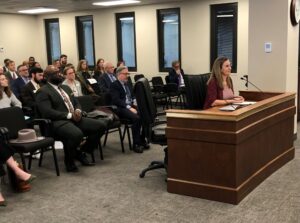
Good morning, I thank each of you for being here today. I am Sara Green, Executive Director of the South Carolina Wildlife Federation – the oldest conservation organization in the state just recently having celebrated our 90th year as a trusted voice on conservation issues.
I’m here this morning to ask for your support for the Conservation Enhancement Act – S.280.
This bill would reinstate the initial funding source for the South Carolina Conservation Bank and significantly increase this agency’s ability to conserve private land. The Bank is the single most important tool the state has to ensure South Carolina’s most iconic and precious natural resources are preserved and protected for future generations.
From the scenic vistas of the Blue Ridge, rolling piedmont and sandhills, giant towering trees of the coastal plain, productive marshes and expansive beaches – we all know that South Carolina is blessed with an incredible diversity of natural resources that are both beautiful and accessible.
Photo Credits: Inlet Point Marsh on Pawley’s Island by Carl Beard; Lake Jocassee by Ellen Haynes; Reedy River by Adam Roberto.
But this treasure trove of land and water is not immune from destruction or neglect; we must be vigilant to protect these amazing places and the wildlife they sustain. It is our duty to protect, nurture, and safeguard these irreplaceable ecosystems so that they may be enjoyed for generations to come. And South Carolinians from all walks of life have spoken; they want their fishing holes, hiking trails, vista views, lakes and streams protected from unwanted and ever-increasing development.
Originally established by the General Assembly in 2002 and funded in 2004, the SC Conservation Bank has helped preserve more than 300,000 acres of threatened lands in our state since its inception by providing funding for fee simple land purchases and conservation easements. And we’re talking mostly about private land conservation. Since 90% of our state’s land is privately held, the Conservation Bank is uniquely qualified to lead the state in private land conservation because it’s grants process was specifically designed for the protection of private lands. The Bank has financially supported some of the largest conservation easement deals in South Carolina’s history.
The Bank was due to sunset in June 2018. The re-authorization bill which extended the life of the Bank, made it a permanent state agency for the first time ever, and also removed the historically dedicated deed stamp funding for the Bank in favor of an annual appropriations through the legislative state budgeting process.
While we sincerely appreciate the General Assembly’s work to make the Bank a permanent agency, in the course of doing so, the dedicated, reliable funding from the deep stamp was repealed. Last session, the Conservation Enhancement Act was introduced in the House and Senate to reinstate that funding mechanism. That bill was introduced late in the session and ultimately did not pass either body before adjournment.
The Senate version of the bill last year also included language directing revenues from the state sales tax on outdoor recreational equipment to be set aside for use by the Department of Parks, Recreation & Tourism, the Forestry Commission and the Department of Natural Resources, to enhance lands owned or managed by those agencies.
This year, these two aspects have been introduced by Senator Campsen and Senator Davis separately – the Public Lands Enhancement Act (S.281) deals with setting aside the tax on outdoor recreational equipment, while the Conservation Enhancement Act focuses on reinstatement of the deed stamp funding. Just yesterday, Representative Phil Lowe, a member of the House Ways and Means Committee, introduced a companion bill to the Conservation Enhancement Act and we anticipate early movement in the House on this measure.
Over the years, the General Assembly has been very conservation-minded. Last year, the General Assembly appropriated $40M to DNR for land acquisition, which was incredibly helpful for public lands in our state. And the Conservation Bank received $25M of non-recurring funds to help with private land conservation. We are very appreciative of your leadership in providing such funding and hope you will continue to allocate more financial resources as growth in our state continues to explode.
Also last year, the Green Space Sales Tax bill passed the General Assembly which enabled Counties to approve by referendum an up-to 1% sales tax dedicated to land acquisition for green space, so we greatly thank the legislature for passing that bill as well. Beaufort County has already enacted and passed this measure. Counties that take advantage of this can then leverage their funds with Conservation Bank funds to get more bang for their buck and have a greater impact for their communities.
The SC Conservation Bank has been incredibly effective with the funds available to them so far – The Bank has conserved over 329,000 acres of significant lands statewide at an average price of $527 per acre, while the appraised value of their land conservation grants up to this point is $1.15 billion. That represents a 7 to 1 rate of return on the investment as a ratio of what the Bank expended, as compared to the fair market value of the property.
Passing the Conservation Enhancement Act, S.280, and reinstating the deed stamp funding is the best way to sustain these efforts and significantly increase private land conservation in our beautiful state.
I thank you for your time and consideration. I hope the Senate will advance the Conservation Enhancement Act and other measures that may come up that will promote public and private land conservation, and protect our beautiful state.
